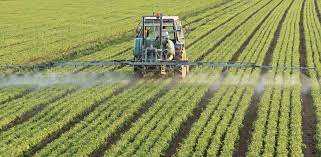Normal
0
false
false
false
EN-US
X-NONE
X-NONE
/* Style Definitions */
table.MsoNormalTable
{mso-style-name:”Table Normal”;
mso-tstyle-rowband-size:0;
mso-tstyle-colband-size:0;
mso-style-noshow:yes;
mso-style-priority:99;
mso-style-parent:””;
mso-padding-alt:0cm 5.4pt 0cm 5.4pt;
mso-para-margin-top:0cm;
mso-para-margin-right:0cm;
mso-para-margin-bottom:10.0pt;
mso-para-margin-left:0cm;
line-height:115%;
mso-pagination:widow-orphan;
font-size:11.0pt;
font-family:”Calibri”,sans-serif;
mso-ascii-font-family:Calibri;
mso-ascii-theme-font:minor-latin;
mso-hansi-font-family:Calibri;
mso-hansi-theme-font:minor-latin;
mso-bidi-font-family:”Times New Roman”;
mso-bidi-theme-font:minor-bidi;
mso-font-kerning:1.0pt;
mso-ligatures:standardcontextual;
mso-ansi-language:EN-US;
mso-fareast-language:EN-US;}
Global Insect Fertilizers Market Insights
Global Insect Fertilizers Market size was valued at USD 65.45 million in 2021 and is poised to grow from USD 68.54 million in 2022 to USD 321.2 million by 2030, growing at a CAGR of 24.3% in the forecast period (2023-2030).
By giving the soil the proper ratio of nutrients, fertilisers are necessary to boost output and ensure healthy food. Without the drawbacks of chemical fertilisers, insect fertilisers are of comparable quality to commercial fertiliser products. After being sterilised at 70 degrees Celsius for an hour, insect products are utilised as fertilisers or soil enhancers.
This process is required to make sure that the fertilizer is free of weeds and pathogens. Insect fertilisers aid in soil improvement, plant growth, and plant protection by serving as a biopesticide and providing frost-protective seed coats. Insect fertilisers are thus more in demand in the agriculture sector due to their many advantages. In addition, the transformation and buildup of heavy metals in food crops are restricted by the use of insect fertilisers in farming. Additionally, it improves crop productivity, nutrient availability in the soil, and the storage and quality of organic carbon in the soil. Because of these benefits, insect frass is anticipated to become more popular for use as organic compost in the future.
Global Insect Fertilizers Market Segmental Analysis
The insect fertilisers market is classified by insect type, application, and region. On the basis of insect type Insect Fertilizers Market includes black soldier flies, mealworms, crickets, buffalo worms, grasshoppers, ants, silkworms, cicadas, and others. By application, Insect Fertilizers Market is divided into cereals and grains, fruits and vegetables, and other applications. Based on region, the Insect Fertilizers Market is segmented into North America, Latin America, Europe, Asia Pacific, and MEA.
Insect Fertilizers Market Analysis by Type
In terms of insect type, the segment of black soldier flies is expected to account for the largest share of the insect fertilisers market in 2022. During the forecast period, the segment is also expected to grow at the fastest CAGR. The increasing production of waste from restaurants, agriculture, and the food and beverage industries; rising urbanisation in developing countries; and growing awareness about the use of black soldier fly larvae to convert waste into organic fertiliser are all factors driving the growth of this market.
Insect Fertilizers Market Analysis by Application
According to application, the cereals & grains segment is expected to account for the largest share of the insect fertilisers market in 2022. This segment’s large market share can be attributed to the growing demand for organic cereals from both developed and developing economies, owing to the potential health benefits offered by organic cereals. The fruits and vegetables segment, on the other hand, is expected to grow at the fastest CAGR during the forecast period. The increasing global production of fruits and vegetables, rising demand for chemical-free organic fruits and vegetables, and an increasing number of diseases affecting fruit and vegetable crops are driving the rapid growth of this segment.


